 |
|
Salonica and After
The Sideshow that Ended the
War
by
H. Collinson Owen
With a Foreword by General Sir George Milne
|
|
 |
|
This is
the 1919 First Edition, though suffering from heavy and
unsightly foxing
“This book,
written by the only member of the British Press who has
devoted his whole time to the Macedonian Front, will be
welcomed by the friends and relatives of all ranks of the
British Salonica Army, and of those who have laid down their
lives for their country in a little known part of the
Balkans. It will help to lift the veil of mystery which hung
over the doings of the Army, due to the lack of publicity
given to those events in Macedonia which ultimately led to
the defeat in the field of the Bulgarian Army, worn out by
three years of constant and harassing warfare.” (Foreword)
Collinson Owen was editor of
“The Balkan Times”, official correspondent in the Near East,
and the only member of the British press who devoted his
whole time to the British Salonica Force. His account, with
much on Salonica itself (including a chapter on the Great
Fire of August 1917), includes everyday life and the
political and military events in Macedonia and Salonica and
ends with two Appendices dealing with the role of the RAF
and the problems of dealing with malaria on the Macedonian
Front. This is a valuable eyewitness account of the Salonika
Campaign published within a year of the end of World War
One.
|
|
 |
 |
|
|
|
Publisher and place of
publication |
|
Dimensions in inches (to
the nearest quarter-inch) |
|
London: Hodder & Stoughton |
|
5½ inches wide x 8¾ inches tall |
| |
|
|
|
Edition |
|
Length |
|
1919 |
|
[viii] + 295 pages |
| |
|
|
|
Condition of covers |
|
Internal condition |
|
Original red cloth gilt. The covers are
scuffed, rubbed
and faded, with some variation in colour and evidence of old staining. The fading is
quite pronounced on the spine, though the gilt blocking remains reasonably bright.
The spine ends and corners are bumped and there is some fraying to the ends
of the spine gutters, particularly the front bottom spine gutter, where the
cloth is split. |
|
There are two vertical creased down the front
free end-paper. The inner hinges are a little tender and there is some
separation between the inner gatherings. There are no internal markings but
there is, unfortunately, heavy and unsightly foxing throughout, and
particularly on those pages (including the Title-Page) adjacent to the
photographic illustrations (please see the images below). For much of the
text sections, the foxing is confined to the margins. The edge of the text
block is grubby, dust-stained and foxed. |
| |
|
|
|
Dust-jacket present? |
|
Other
comments |
|
No |
|
Collated and complete but in somewhat faded covers
and with particularly heavy foxing throughout. |
| |
|
|
|
Illustrations,
maps, etc |
|
Contents |
|
Please see below |
|
Please see below |
| |
|
|
|
Post & shipping
information |
|
Payment options |
|
The packed weight is approximately
700 grams.
Full shipping information is
provided in a panel
at the end of this listing.
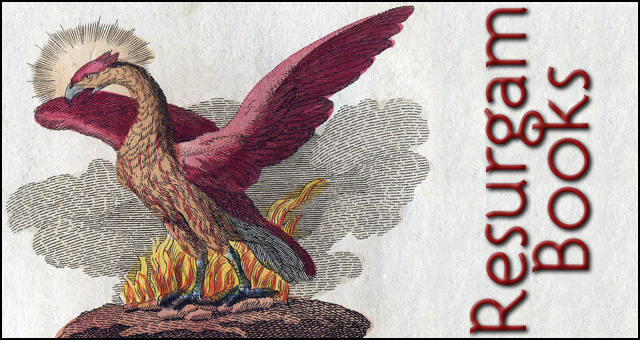 |
|
Payment options
include-
UK buyers: cheque (in
GBP), money order, cash, debit card, credit card (Visa, MasterCard but
not Amex), PayPal
-
International buyers: credit card
(Visa, MasterCard but not Amex), PayPal
Full payment information is provided in a
panel at the end of this listing. |
|
|
 |
|
  |
|
 |
 |
|
Salonica and After
Contents
I.—Getting there
II.—When the B.S.F. was Young
III.—Salonica Nights
IV.—A Day in Town
V.—The "B.N."
VI.—Friends up Country
VII.—" The Coveted City "
VIII.—The Fire
IX.—Two Balkan Days—January July
X.—The Balkan Stage
XI.—Ourselves and our Allies
XII.—The Army from Without
XIII.—The Conversion of Greece
XIV.—Mud and Malaria
XV.—Home on Leave
XVI.—The Allied Operations
XVII.—Doiran
XVIII.—Victory
XIX.—The Pursuit
XX.—. . . . And After
Appendix I.—Work of the 16th
Wing R.A.F.
Appendix II.—A Note on Malaria
Index
Illustrations
-
General Sir George Milne, G.C.M.G.,
K.C.B., at a Horse Show at Guvesne -
Salonica in the days of the Turk:
a photograph taken in 1911. It is interesting as showing the
crenellated walls round the White Tower which still existed at
that time -
Salonica in the days of the
Allies. A section of the crowd listening to the French Band in
the Place de la Liberte . -
Some of the Comitadjis who worked
for the British in the Struma Valley -
A scene in Jean, Tchimiski Street,
December, 1916 -
The Limonadji, or street lemonade
seller -
Macedonian shepherd on the summit
of Mount Kotos (4,000 feet) overlooking Salonica Harbour -
Salonica the day after the fire. -
British Transport in Macedonia: A
typical road on a summer day -
Our Balkan Allies: Serbs at Mikra,
after landing from Corfu, 1916 -
Evzones of the Venizelist Army
leaving for the Front, 1917 -
Macedonian mud : Serbian Artillery
horses rescuing a Ford car -
The Pass Road from Bralo down to
Itea -
Macedonian " Ladies " breaking
stones for road-making -
The British Balkan Front from
Gjevgjeli to Orfano -
Doiran, showing Tortoise Hill,
Jumeaux Ravine and Petit Couronne on the left just above the
lake. From here the hills rise upwards, over Doiran Town, to
Grand Couronne, with its scarred crest. Dominating Grand
Couronne is seen the undulating Pip Ridge, and beyond this again
the snow-clad mountains of Serbia -
The British Fleet passing up the
Dardanelles. Photo taken from the Flagship Superb, showing
Temeraire, Lord Nelson and Agamemnon astern
A map of the Balkan Front (rear
end-papers : please see the final image below)
|
|
 |
 |
|
Salonica and After
Foreword
This book, written by the only member of the British Press who has
devoted his whole time to the Macedonian Front, will be welcomed by
the friends and relatives of all ranks of the British Salonica Army,
and of those who have laid down their lives for their country in a
little known part of the Balkans.
It will help to lift the veil of mystery which hung over the doings
of the Army, due to the lack of publicity given to those events in
Macedonia which ultimately led to the defeat in the field of the
Bulgarian Army, worn out by three years of constant and harassing
warfare.
The chapters dealing with the attacks on the Doiran position
summarise the great difficulties which had to be surmounted by men
whose strength was being slowly sapped by prolonged residence in the
most unhealthy portion of Europe, but whose esprit de corps was of
the highest and whose faith in ultimate victory never faltered.
This book may help some to see in proper perspective how the
crowning achievement of long and weary vigil in a secondary theatre
of operations struck at the Achilles heel of the Central Powers and
materially aided in their rapid collapse during the dramatic Autumn
of 1918.
(Signed G. Milne)
General.
Advanced General Headquarters, Guvesne, Macedonia.
Author’s Note
The publication of this book, which was written in the earlier part
of the present year, was delayed for some months owing to the Author
being abroach But this proves to have been a happy thing, as in the
meantime Ludendorff has given us his Memoirs, and these support in
signal fashion all that is here claimed for the Balkan Front, and
show that the sub-title, " The Sideshow that Ended the War," is in
no sense an exaggeration, but is a plain statement of military fact.
Had the book been published earlier in the year, no doubt many
people would have taken exception to this description, and said that
the Author was too easily carried away by his enthusiasm for his
subject. But if anybody knows exactly why our enemies crumbled up so
suddenly and dramatically Ludendorff should. We will examine very
briefly what he says on the subject of the break-through on the
Balkan Front in September, 1918.
Writing of the Allied 1918 offensive on the Western Front,
Ludendorff says (Times, August 22nd, 1918) :— " August 8 was the
black day of the German Army in the history of this war. This was
the worst experience that I had to go through except for the events
that, from September 15 onwards, took place on the Bulgarian Front
and sealed the fate of the Quadruple Alliance."
The comment of the Times on Ludendorff's own description of the
march of events on the Western Front is as follows :—
" The other fact that stands out was the defeat of the Bulgarian
Army, a fact which in Ludendorff's mind seems completely to have
overshadowed the sensational victory of the British Army at Cambrai
at the end of September." Another Press comment on the same point
was : " When Bulgaria, too, went, he threw up the sponge, and even
the tremendous British victory in forcing the Hindenburg Line is
dismissed in a few words as a mere incident in the general ruin."
Ludendorff himself continues :—" It very soon became clear that from
Bulgaria nothing more was to be expected. . . . . The position in
the field could only become decidedly worse. It was impossible to
tell whether this process would be slow or precipitate. I The
probability was that events would come to a head within a measurable
time, as indeed actually happened in the Balkan Peninsula and on the
Austro-Hungarian Front in Italy.
" In this situation I felt incumbent upon me the heavy
responsibility of hastening the end of the war and of promoting
decisive action on the part of the Government.'''
The British Salonica Force could not desire a more striking tribute
to its long devotion and ultimate triumphal success than these few
plain words from Ludendorff. Together with the famous letter from
Hindenburg in which, speaking of the Bulgarian collapse, he said, "
It is no longer possible for us to resist; we must ask for an
armistice," they demolish all that was ever said in criticism of the
value of the Salonica Army and at the same time lift that Force to
its rightful place in the history of the Great War.
H. C. O.
London, August, 1919.
|
|
 |
 |
|
Salonica and After
Chapter I.
Getting There.
" Whoever would have dreamed of coming
to Salonica?" sighed a melancholy and homesick young captain from up
the line. We were sitting in the famous cafe of Floca—famous not for
any startling merits on the part of Floca Freres, but just because
it was our premier cafe, and the rendezvous of everybody in
general—and the world must have a rendezvous, even in Salonica.
Outside, through the newly glazed windows, we looked upon the
charred skeletons of the buildings destroyed in the great fire—a
conflagration which should really be referred to as the Great Fire,
and will always so be thought of by those who saw it.
And inside the flies were buzzing merrily—or fiercely—for the heat
had come early, and they were in the first flush of their spring
ardour. They settled on our hands, heads and faces, tickling, biting
and enraging us. They buzzed round in clouds exploring milk jugs,
beer pots, sticky cakes on plates (gateaux mouches, as somebody
wittily called them) and generally behaving as all flies in the Near
East do, as if to make up by their extravagance of vigour for the
natural indolence of the inhabitants. And the flies were merely the
sauce piquante, so to speak, to the general boredom and weariness of
men who had been living for years without leave in a distressing
country which they heartily disliked. The captain from up the
line—like many others—had not seen home for over two and a half
years. He was weary of Macedonia, and his heart longed fiercely for
home—"Blighty" on a wet evening if you like, with the lights turned
low and all the theatres showing their "House Full" boards, but "Blighty"
under any conditions if the impossible could only happen. And the
sigh that welled up from him de Profundis, "Whoever would have
dreamed of coming to Salonica?" spoke volumes.
But to pass from his melancholy, which was a very common symptom in
Macedonia, whoever would have dreamed of coming to Salonica ? True
it is now a household name, like " Plugstreet," Mesopotamia, and
many other blessed words. But before the war who could have taken
his atlas and, putting down his finger, said triumphantly, "There is
Salonica!" True, we knew it existed somewhere, like Syracuse or
Antananarivo. But very few people in our world knew anything more of
it than its bare existence. St. Paul, we might remember, once wrote
an epistle to the Thessalonians. But very few people, again, ever
dreamed of connecting, however distantly, " certain lewd fellows of
the baser sort" with the people of the modern city where Jew meets
Greek in a perpetual tug of war. England, in short, never had any
business with Salonica, and never expected to have any. It was as
far removed from our ken as any place on the map could be. Belgium
had been swallowed up; Paris had been menaced and saved; the battle
of Loos had been fought and lost; Gallipoli had flared up with
heroic glory and died down into a smoulder of forlorn hopes, and
some people were already talking of " war weariness "—and still we
had not heard of Salonica. And then there came a sudden and
unexpected turn in the wheel of war. A new name appeared in the
newspaper headlines—Salonica—and the convenient maps that
accompanied the news of our men landing there showed exactly where
it lay. The military critics told us exactly what the new expedition
meant, and all it was going to do. Torres Vedras was mentioned, and
what Wellington did. The public was much excited and waited eagerly
for the glad news that history had repeated itself. (It came indeed,
but after how many delays and doubts and grumblings ?) The amateur
strategist played joyfully with the latest idea, and trotted happily
up and down a new country which looked delightfully small and easy
on the map. The first exchange of shots was opened which developed
into the long-drawn battle between Easterners and Westerners. The
immediate doom of the Turk was announced. People said, "By the way,
is it Saloneeka or Salonika or Salonyker?" And so the new word—in
various disguises—passed into the language.
And there it will remain. The many thousands of men of the British
Armies who passed through it into Macedonia, and carried the Old
Flag into lands where it had never been seen before; or who trod its
uneven cobbles on very occasional leave; or lay weak with fever or
wounds in the great hospitals that ringed it round, will see to
that. They may have loathed Salonica as they loathed, in earlier
days, the six o'clock hooter on a Monday morning. But in their minds
it stands for Victory. And they will not let it be forgotten. When
to-morrow's children are listening to stories of Ypres and Cambrai
and Neuve Chapelle a great many others will be listening to what
happened in Salonica and beyond.
The new name had not yet lost its first flush of popularity at home
when the writer received an intimation that his humble services
might be useful to the British Army . . .
Chapter IV.
A Day in Town.
Everything in this life, or presumably
any other, is relative. The soldier whose lot it was, pleasant or
otherwise, to work in Salonica thought of leave only as a journey
home to England. But the soldier up the line had a different point
of view. Leave for Home was a thing hardly to be dreamed of. But for
the officer there was always the possibility of leave to Salonica,
although it was not until late in the campaign that it was possible
to bring parties of men down, and some of these saw their first town
for two and a half years.
The man who lived in Salonica might sometimes wonder why on earth
anybody should ever want to get leave to visit it. But the man
up-country had no doubts on the point. On a number of occasions,
after an absence of a week or ten days up-country, I have myself
been pleasantly excited to enter the town again, and see people once
more, and tramcars and shops. And it was therefore easy to imagine
the joy of officers up-country who, after four or six months in the
wilderness, with perhaps a squalid little village as the highest
mark of civilisation, came down to town with three days' leave.
They made the very most of it, like schoolboys in the first flush of
a holiday. And yet their trip to town always had its duties and
responsibilities. Each officer so favoured always came down with a
long list of commissions to be executed for his battalion, so that
the last two of his three days in town were generally filled up with
tramping up and down the uneven cobbles in quest of things for
others. And it was remarkable how faithfully and painstakingly this
sort of thing was always done.
For long the weekly journals at home, humorous and otherwise, were
filled with little articles describing the joys or trials of our
officers and men coming home to England for a few days' leave. The
story always began at Armentieres, or "The Salient," or some equally
famous spot, and finished up at Victoria. Exactly the same incidents
were common to the life of our men out in Macedonia, with only local
differences, but Bairnsfather has not limned them nor have
contributors to "Punch" let their fancy play on them. France
overshadowed all, and for the average reader at home "Leave" meant a
trip across the Channel in the Boulogne boat. They could not imagine
that large numbers of their countrymen sat on barren hills just
short of Doiran, or in the malarial plain of the Struma, and looked
with much longing towards a higgledy-piggledy city of the Aegean,
some fifty miles away. Victoria did not enter their thoughts. It was
out of the question— reserved only for those lucky people who
campaigned in France. Salonica represented all that there was to
hand of civilisation and, if you like, joie de vivre. It was a poor
enough substitute, but the very most was made of it on the rare
occasions when those of the frontline could visit it.
Out in Macedonia the first throb of excitement came, say, on Tortue
Hill, just below the sinister Grand Couronne, or at some outpost of
ours on the plain facing the Rupel Pass. In the one case it meant a
long ride to the railway, and then a tedious all-night journey in
the train; in the other, a ride to the 70th Kilometre . . .
Chapter VIII.
The Fire.
Saturday, August 18th, 1917, is a day
that will be long remembered by many thousands of members of the
Salonica Force. They may not always be able to recall the date
itself, but they will never forget the fire that occurred on it,
when nearly a square mile of the city was burned down in a few
hours.
In those days I lived in a very pleasant and roomy apartment above
one of the town's big shops. It was a very hot day, and the local
Sirocco—a hot wind from the direction of the Vardar — was blowing half
a gale, and had been doing so for two or three days. I was sitting
at tea, clad as lightly as the conveyances would allow, when
Christina, the Greek maid from Constantinople, came in with some
more hot water.
" You know there is a big fire," she said. " They say half the town
is burning."
One accepted this as mere exaggeration, and so it was at the moment.
But a little later I went up on to the flat roof to look. From here
one had a view of practically the whole of the city and its
surroundings. And sure enough, away up the hill in the north-western
corner of Turkish Town, there was a big blaze in progress. Through
glasses I could see a sailor standing on a roof semaphoring with his
arms. It looked as though a considerable area was alight, and the
hot wind was blowing strongly and steadily down towards our part of
the city. Then I became aware that dozens of the springless,
rattling carts that make life hideous, were dashing over the cobbles
and up the hill, presumably having been engaged for salvage work.
But big as the fire looked it seemed a very remote thing, having no
concern with one's own existence. Naturally a lot of these
half-wooden houses would be burnt' down, and Turks and Jews would be
homeless ! But life is sometimes hard and one must expect these
things ! I went down again and began to make preparations for a
journey up Monastir way.
Perhaps rather less than an hour later I went up to have another
look. Jove, but the fire had made progress ! In the foreground
people were standing on roofs, free from concern and enjoying the
spectacle. But it began to look ugly, with that dry, hot wind like a
forced draught blowing continuously. I went down to the street,
where the car was waiting.
" Mason," I said, " I don't think we shall go up-country to-day. It
looks to me as though there won't be any Salonica left to-night."
" Very good, sir," said Mason. " I heard there was a fire
somewhere."
Mason, who was a corn merchant in a comfortable way of business at
home, was always like that.
At the office I found that people were becoming slightly concerned,
although there was no sense of impending trouble. The natives of the
city were convinced that it would not spread far. They too felt,
although they did not say it in so many words, that although the
fire might destroy the native quarters, it would not have the bad
taste to come down into the more or less civilised parts of the
city.
I decided to go up and have a look at the scene of the
conflagration. Egnatia Street was jammed, and we met the first
refugees carrying bits of furniture, pushing through the press. A
little way up one of the side streets, that climbs the hill
northwards, we had to leave the car. Turks and Jews, with wild eyes,
were hurrying down, carrying all sort's of things. A little further
and we were on the edge of the burning quarter; and the tide of
distracted, homeless people was flowing all around us.
It was an extraordinary sight, and one which but for the sewing
machines and smashed wardrobe mirrors which littered the narrow
streets and alleys, might have been plucked straight from Biblical
times. This was the heart of the Salonica Ghetto, where a great
proportion of the population still preserved their ancient costumes.
Here were to be seen, in scores, white-bearded patriarchs wearing
fezzes and their old-time gaberdine costume known as the intari,
rushing about frenzied] y in spite of the skirts that clung round
their slippered feet. Their women-kind rushed about with them,
holding their children by the hand and sobbing, shouting and
imploring. It was an amazing and a sad scene; the wailing families,
the crash of falling houses as the flames tore along, swept by the
wind; and in the narrow streets a slow-moving mass of pack donkeys,
loaded carts, hamate carrying enormous loads; Greek boy scouts (who
were doing excellent work); soldiers of all nations, as yet
unorganised to do anything definite; ancient wooden fire-engines
that creaked pathetically as they spat out ineffectual trickles of
water; and people carrying beds (hundreds of flock and feather
beds), wardrobes, mirrors, pots and pans, sewing machines (every
family made a desperate endeavour to save its sewing machine) and a
general collection of ponderous rubbish. The evacuation of each
street came in a panic rush as its inhabitants realised that their
homes also were doomed. This attitude of only believing at the very
last moment that there was any danger for their own homes or
business establishments, marked the whole progress of the fire until
the moment when it had reached the edge of the sea and was blazing
along nearly a mile of front. The inhabitants of every separate line
or section of streets were convinced that the conflagration was
going to pass them by. A quarter of an hour later they were fleeing
for their lives, bearing all sorts of absurd household goods snapped
up in panic moments. As it was the Jewish Sabbath many of the big
shops were closed, and jewellers and others did not appear to try
and save their stocks until a late hour. At ten o'clock that night,
people in hotels on the water front did not think their sleeping
arrangements would be disturbed—and were bolting with their hand
luggage at eleven.
Amid the medley and the uproar of the fire up in the Ghetto I found
the P.M. It was a difficult situation for any administrative officer
to face. The local means for fighting a fire were nil, or next to
it. It was not easy to say in whose hands lay the material and moral
responsibility for tackling the fire, and here was a case in which a
mixed command presented difficulties. Moreover, the fire had
attained its alarming proportions with such a sudden rush that
everybody was taken off their guard. And the " native" quarter
seemed a place off everybody's beat. The Allies only visited it for
a stroll or from curiosity. It was, in a vague way, nobody's
business—until suddenly, like a thunder-clap, it became apparent
that it was everybody's business. At about this time a company of
the Dur-hams arrived from the garrison battalion down in Beshtchinar
Gardens, to form a cordon. But that did not help to put out the
fire, and there were still no fire-engines, and little water to go
through them . . .
Chapter XVI.
The Allied Operations.
Though during the long three-years
campaign in the Balkans there were many periods of enforced
comparative inactivity during which only the regular growling of the
artillery and the work of the patrols and the Allied aviators kept
up the offensive spirit, there was far more fighting in the
aggregate than most people in the outside world realised, and
amongst them the various Allies—Serbians, French, British, Italians,
even Russians, and, finally, the Greeks—laid down many thousands of
lives on the barren mountains that mark the frontiers of Serbia,
Greece and Bulgaria.
The Allied move out of the " Birdcage " in the spring and early
summer months of 1916 to take up positions along the Greek frontier
where the enemy—Bulgars, Germans, Austrians and Turks—had now
entrenched themselves on most formidable positions, was followed by
a long period during which change, re-arrangement, marching and
counter-marching seemed to go on interminably. This was due to
various causes; to " bluff " on both sides; to a proposed Allied
Offensive along the Vardar, which had to be abandoned because the
Bulgars got in first with their own attack on the left of the Allied
line, against the Serbs; and also because of the fact that at first,
owing to a number of reasons, British and French Divisions were
mixed up in rather higgledy-piggledy fashion. The troops, who knew
nothing of any of the reasons dictating these changes, found
themselves committed to a good deal of hard and exasperating
marching and counter-marching in exhausting heat, which seemed to
lead to nothing in particular. Then the Italians who in September
took up a twenty-five mile line on the Krusha-Balkan sector, between
Lake Doiran and the Struma Valley, came as another dividing wedge
between the two wings of the British front. It was not until towards
the end of 1916 that the British finally settled down on the line
running from the Vardar to Doiran, round the elbow made by the
Krusha-Balkan range and so down the long Struma Valley to the sea—a
distance of about ninety miles. This very extended front was held
for two and a half years. Along its whole length we were dominated
by enemy positions which were always markedly superior in
strength—and height—and as a rule immensely superior. It was a crazy
front, like the whole of the Balkan front, and zig-zagged up and
down steep hills, in and out of ravines, ran along the tops of high
ridges and finally brought us up on the Struma with its odd mixture
of open and position warfare. To hold this very long front, always
against superior forces, we had as a maximum four Divisions, much
weakened by sickness and casualties. The 10th Division, after its
gallantry and hardships in the retreat down from the Bulgarian
frontier in 1915, took part in some stiff and successful fighting in
the Struma Valley in 1916, and went to Palestine in September, 1917,
there to win fresh laurels. The 60th Division, which only arrived in
the Balkans in December, 1916, also went to Palestine in June, 1917,
and saw comparatively little service in the Balkans, although it was
to see plenty under General Allenby later on and to play a big part
in his victories. At about the same time the 7th and 8th Mounted
Brigades also went to Palestine . . .
|
|
 |
|
  |
 |
|

Please note: to avoid opening the book out, with the
risk of damaging the spine, some of the pages were slightly raised on the
inner edge when being scanned, which has resulted in some blurring to the
text and a
shadow on the inside edge of the final images. Colour reproduction is shown
as accurately as possible but please be aware that some colours
are difficult to scan and may result in a slight variation from
the colour shown below to the actual colour.
In line with eBay guidelines on picture sizes, some of the illustrations may
be shown enlarged for greater detail and clarity.
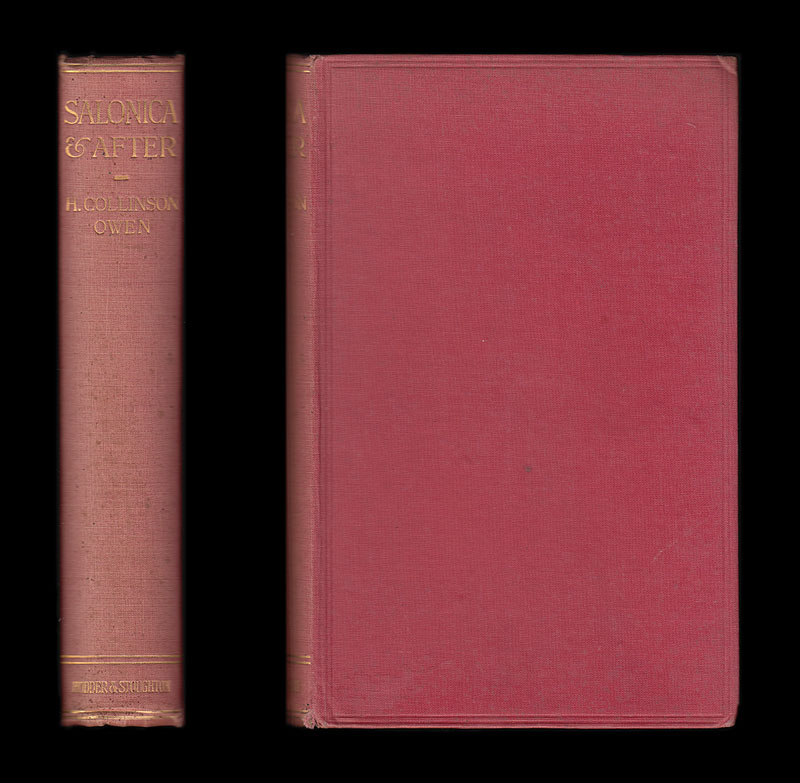


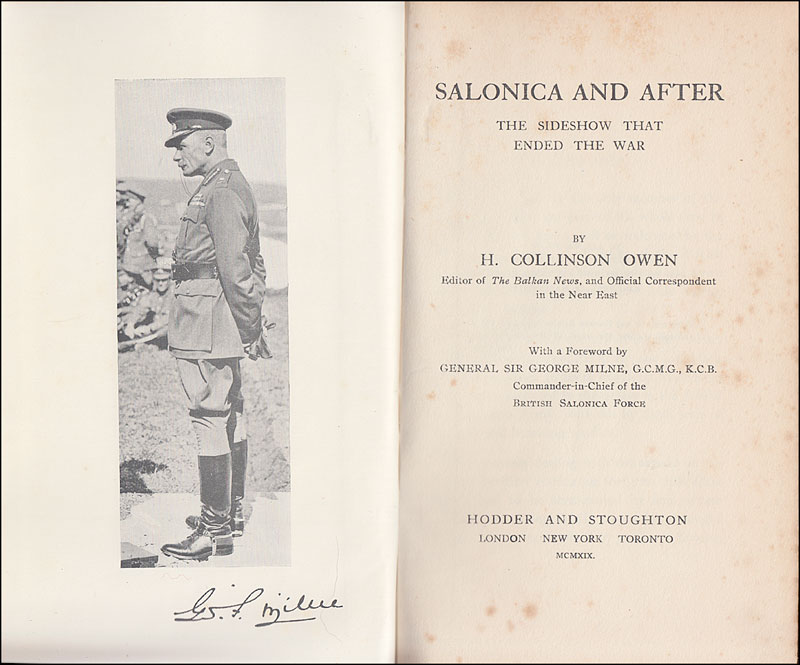
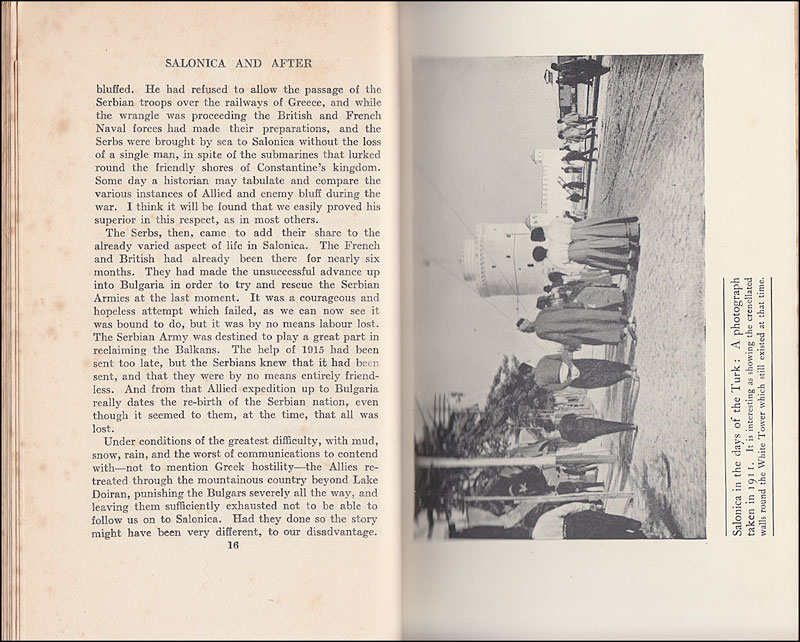
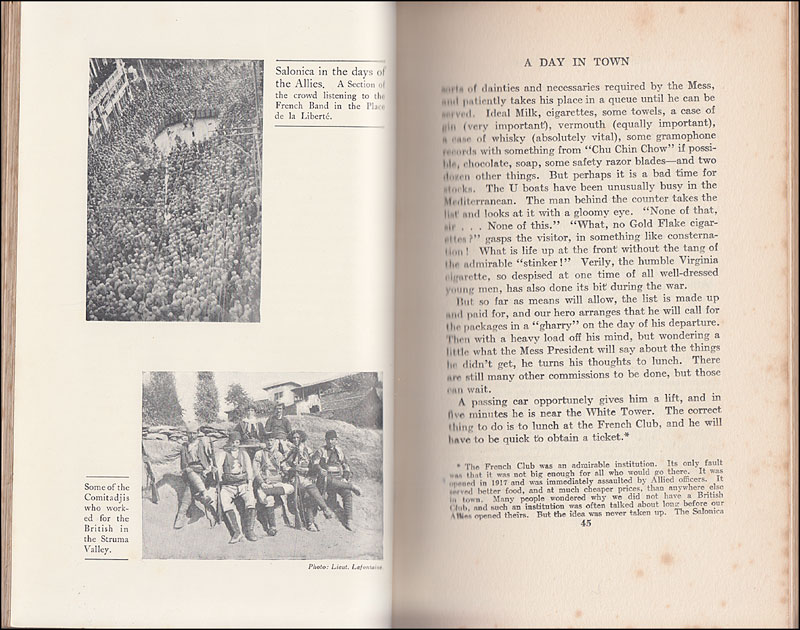
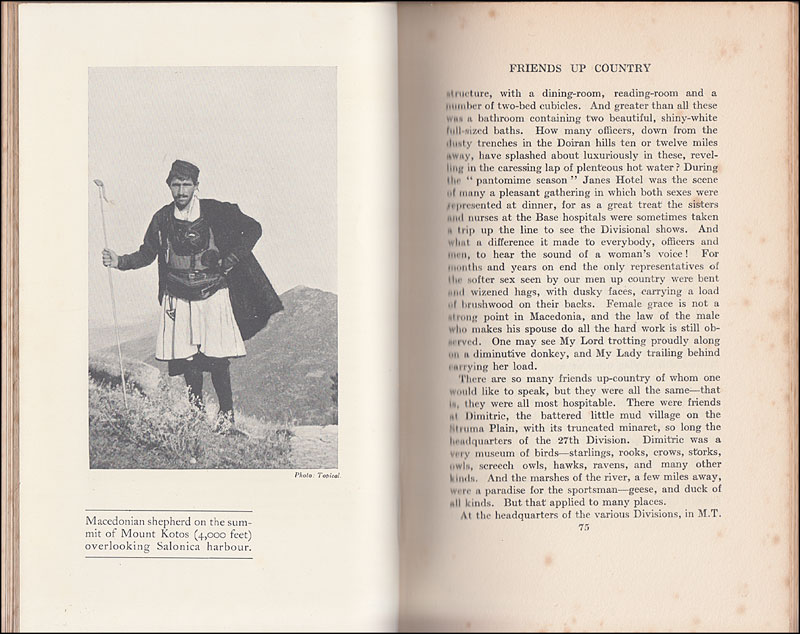
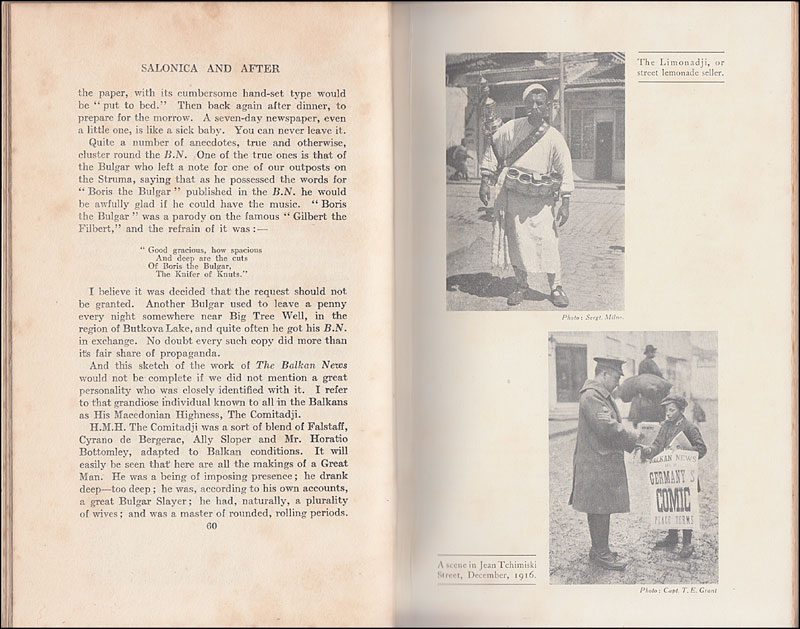
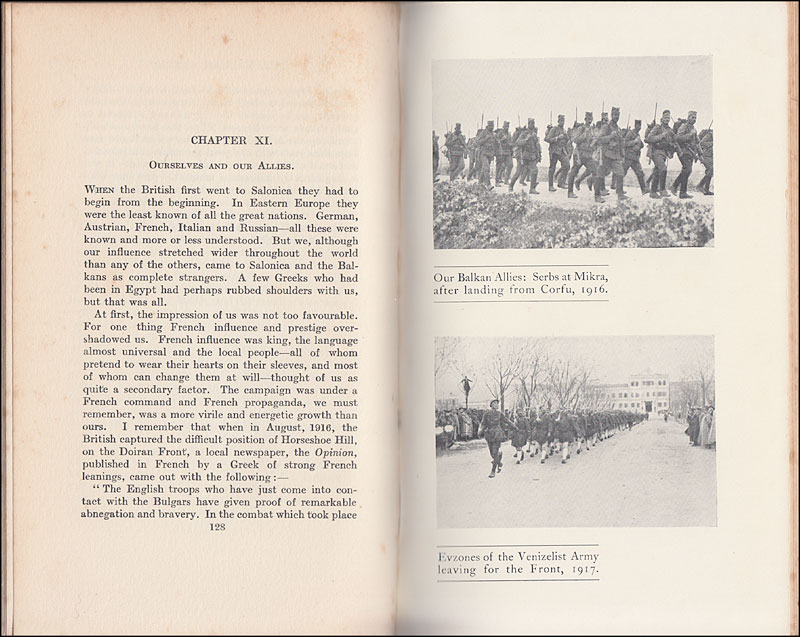
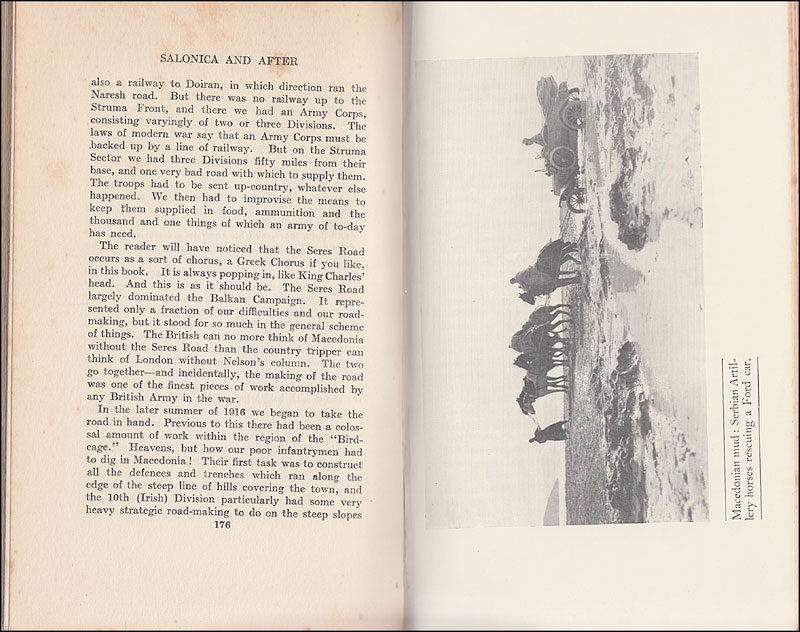
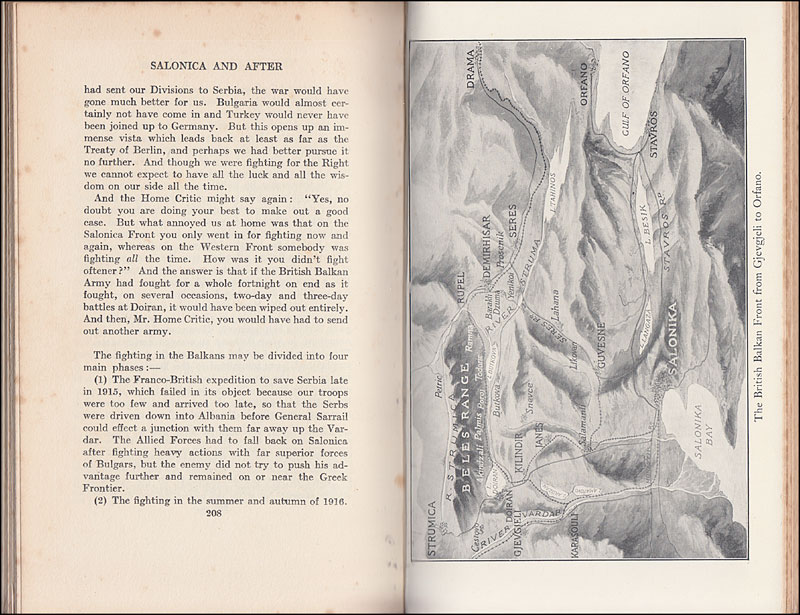
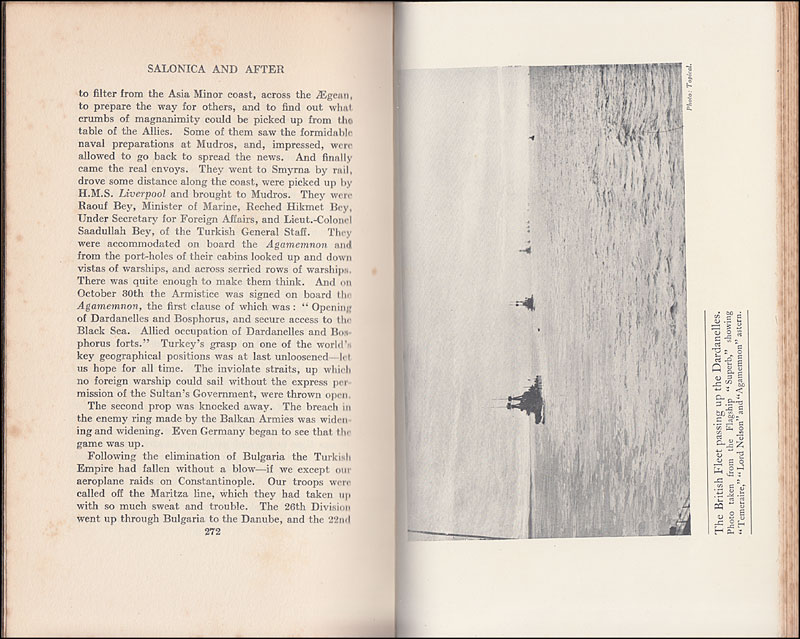
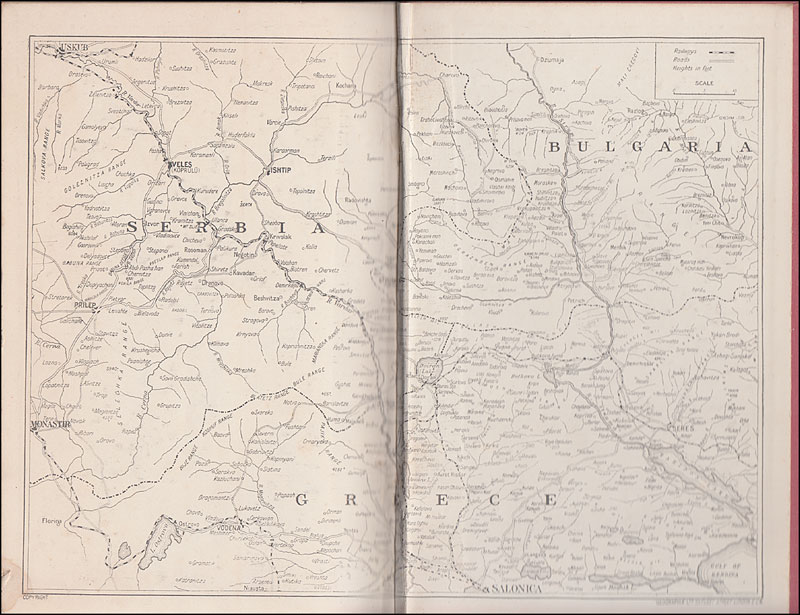
|
|
 |
|
 

IMPORTANT INFORMATION FOR PROSPECTIVE
BUYERS |
 |
|
U.K. buyers:
|
To estimate the
“packed
weight” each book is first weighed and then
an additional amount of 150 grams is added to allow for the packaging
material (all
books are securely wrapped and posted in a cardboard book-mailer).
The weight of the book and packaging is then rounded up to the
nearest hundred grams to arrive at the postage figure. I make no charge for packaging materials and
do not seek to profit
from postage and packaging. Postage can be combined for multiple purchases. |
Packed weight of this item : approximately 700 grams
|
Postage and payment options to U.K. addresses: |
-
Details of the various postage options (for
example, First Class, First Class Recorded, Second Class and/or
Parcel Post if the item is heavy) can be obtained by selecting
the “Postage and payments” option at the head of this
listing (above). -
Payment can be made by: debit card, credit
card (Visa or MasterCard, but not Amex), cheque (payable to
"G Miller", please), or PayPal. -
Please contact me with name,
address and payment details within seven days of the end of the auction;
otherwise I reserve the right to cancel the auction and re-list the item. -
Finally, this should be an enjoyable
experience for both the buyer and seller and I hope you will
find me very easy to deal with. If you have a question or query
about any aspect (postage, payment, delivery options and so on),
please do not hesitate to contact me, using the contact details
provided at the end of this listing.
|
|
 |
 |
|
International
buyers:
|
To estimate the
“packed
weight” each book is first weighed and then
an additional amount of 150 grams is added to allow for the packaging
material (all
books are securely wrapped and posted in a cardboard book-mailer).
The weight of the book and packaging is then rounded up to the
nearest hundred grams to arrive at the shipping figure.
I make no charge for packaging materials and do not
seek to profit
from shipping and handling.
Shipping can
usually be combined for multiple purchases
(to a
maximum
of 5 kilograms in any one parcel with the exception of Canada, where
the limit is 2 kilograms). |
Packed weight of this item : approximately 700 grams
| International Shipping options: |
Details of the postage options
to various countries (via Air Mail) can be obtained by selecting
the “Postage and payments” option at the head of this listing
(above) and then selecting your country of residence from the drop-down
list. For destinations not shown or other requirements, please contact me before buying.
Tracked and "Signed For" services are also available if required,
but at an additional charge to that shown on the Postage and payments
page, which is for ordinary uninsured Air Mail delivery.
Due to the
extreme length of time now taken for deliveries, surface mail is no longer
a viable option and I am unable to offer it even in the case of heavy items.
I am afraid that I cannot make any exceptions to this rule.
|
Payment options for international buyers: |
-
Payment can be made by: credit card (Visa
or MasterCard, but not Amex) or PayPal. I can also accept a cheque in GBP [British
Pounds Sterling] but only if drawn on a major British bank. -
Regretfully, due to extremely
high conversion charges, I CANNOT accept foreign currency : all payments
must be made in GBP [British Pounds Sterling]. This can be accomplished easily
using a credit card, which I am able to accept as I have a separate,
well-established business, or PayPal. -
Please contact me with your name and address and payment details within
seven days of the end of the auction; otherwise I reserve the right to
cancel the auction and re-list the item. -
Finally, this should be an enjoyable experience for
both the buyer and seller and I hope you will find me very easy to deal
with. If you have a question or query about any aspect (shipping,
payment, delivery options and so on), please do not hesitate to contact
me, using the contact details provided at the end of this listing.
Prospective international
buyers should ensure that they are able to provide credit card details or
pay by PayPal within 7 days from the end of the auction (or inform me that
they will be sending a cheque in GBP drawn on a major British bank). Thank you.
|
|
 |
 |
|

(please note that the
book shown is for illustrative purposes only and forms no part of this
auction)

Book dimensions are given in
inches, to the nearest quarter-inch, in the format width x height.
Please
note that, to differentiate them from soft-covers and paperbacks, modern
hardbacks are still invariably described as being ‘cloth’ when they are, in
fact, predominantly bound in paper-covered boards pressed to resemble cloth. |
|
 |
 |
|

Fine Books for Fine Minds |
I value your custom (and my
feedback rating) but I am also a bibliophile : I want books to arrive in the
same condition in which they were dispatched. For this reason, all books are
securely wrapped in tissue and a protective covering and are
then posted in a cardboard container. If any book is
significantly not as
described, I will offer a full refund. Unless the
size of the book precludes this, hardback books with a dust-jacket are
usually provided with a clear film protective cover, while
hardback books without a dust-jacket are usually provided with a rigid clear cover.
The Royal Mail, in my experience, offers an excellent service, but things
can occasionally go wrong.
However, I believe it is my responsibility to guarantee delivery.
If any book is lost or damaged in transit, I will offer a full refund.
Thank you for looking.
|
|
 |
 |
|
Please also
view my other listings for
a range of interesting books
and feel free to contact me if you require any additional information


Design and content © Geoffrey Miller |
|
 |
|
|
|